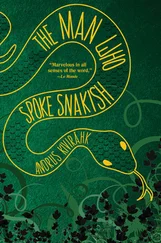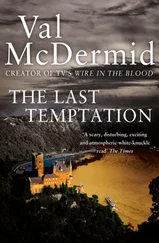‘I thought the police always had little notebooks with black covers that they wrote everything down in. But maybe that's just in books and at the movies.’
Martin Beck got up.
‘If you hear anything from him, perhaps you'd be good enough to call me,’ she said. ‘Would you?’
‘Naturally,’ said Martin Beck.
In the hall, he asked, ‘Where did you say he was living now?’
‘On Fleminggatan. Number 34. But I didn't say.’
‘Have you got a key to the apartment?’
‘Oh, no. I haven't even been there.’
On the door was a piece of cardboard with MATSSON lettered on it in India ink. The lock was an ordinary one and caused Martin Beck no difficulties. Aware that he was overstepping his authority, he made his way into the flat. On the doormat was some mail – a few advertisements, a postcard from Madrid signed by someone called Bibban, a sports car magazine in English and an electricity bill amounting to 28:45 kronor.
The flat consisted of two large rooms, a kitchen, hall and toilet. There was no bathroom, but two large wardrobes. The air in the flat was heavy and musty.
In the largest room, facing the street, were a bed, a night table, bookshelves, a low circular table with a glass top, a desk and two chairs. On the night table stood a record player and on the shelf below, a pile of long-playing records. Martin Beck read in English on the top sleeve: Blue Monk. It meant nothing to him. On the desk were a sheaf of typing paper, a daily paper dated the twentieth of July, a taxi receipt for 6:50 kronor dated the eighteenth, a German dictionary, a magnifying glass and a stencilled information sheet from a youth club. There was a telephone too, and telephone directories and two ash trays. The drawers contained old magazines, magazine photographs, receipts, a few letters and postcards, and a number of carbon copies of manuscripts.
In the back room there was no furniture at all except a narrow divan with a faded red cover, a chair and a stool that served as a night table. There were no curtains.
Martin Beck opened the doors of both wardrobes. One of them contained an almost empty laundry bag and on the shelves lay shirts, sweaters and underclothes, some of them with the laundry's paper bands still unbroken around them. In the other hung two tweed jackets, a dark-brown flannel suit, three pairs of trousers and a winter overcoat. Three hangers were empty. On the floor stood a pair of heavy brown shoes with rubber soles, a pair of thinner black ones, a pair of boots and a pair of galoshes. There was a large suitcase in the cupboard above the one wardrobe, but the other cupboard was empty.
Martin Beck went out into the kitchen. There were no dirty dishes in the sink, but on the draining board were two glasses and a mug. The pantry was empty except for a few empty wine bottles and two cans. Martin Beck thought about his own pantry, which he had quite unnecessarily cleaned out so thoroughly.
He walked through the flat one more time. The bed was made, the ash trays were empty, and there were neither passport, money, bankbooks nor anything else of value in the drawers of the desk. All in all, there was nothing to indicate that Alf Matsson had been home since he had left the flat and gone to Budapest two weeks previously.
Martin Beck left Alf Matsson's flat and stood for a moment by the deserted taxi stand down on Fleminggatan, but as usual at lunch time there were no taxis available and he took a trolley instead.
It was past one when he went into the dining room of the Tankard. All the tables were taken and the harassed waitresses took no notice of him. There was no headwaiter to be seen. He crossed over to the bar on the other side of the entrance hall. At that moment a fat man in a corduroy jacket gathered up his papers and rose from a round table in the corner next to the door. Martin Beck took his place. Here too, all the tables were full, but some of the customers were just paying their bills.
He ordered a sandwich and beer from the headwaiter and asked if any of the three journalists was there.
‘Mr Molin is sitting over there, but I haven't seen the others today. They'll probably be in later.’
Martin Beck followed the headwaiter's glance towards a table where five men were sitting talking with large steins of beer in front of them.
‘Which of the gentlemen is Mr Molin?’
‘The gentleman with the beard,’ said the headwaiter, and went away.
Confused, Martin Beck looked at the five men. Three of them had beards.
The waitress came with his sandwich and beer and gave him the chance to say, ‘Do you happen to know which of the gentlemen over there is Mr Molin?’
‘Of course, the one with the beard.’
She followed his somewhat desperate look and added, ‘Nearest the window.’
Martin Beck ate his sandwich very slowly. The man named Molin ordered another stein of beer. Martin Beck waited. The place began to empty. After a while Molin emptied his stein and was given another. Martin Beck finished eating his sandwich, ordered coffee, and waited.
Finally the man with the beard got up from his place by the window and walked towards the entrance hall. Just as he was passing, Martin Beck said, ‘Mr Molin?’
The man stopped. ‘Just a moment,’ he said, and went on out.
A short while later, he returned, breathed heavily all over Martin Beck, and said, ‘Do we know each other?’
‘No, not yet. But perhaps you'd like to sit down a moment and have a beer with me. There's something I'd like to ask you about.’
He himself could hear that it didn't sound especially good. Smelled of police business a mile away. But it worked anyhow. Molin sat down. He had fair, rather thin hair, combed forward onto his forehead. His beard was reddish and neat. He looked about thirty-five and was quite plump. He waved a waitress over to him.
‘Say, Stina, get me a round, will you?’
The waitress nodded and looked at Martin Beck.
‘The same,’ he said.
A ‘round’ turned out to be a bulbous and considerably larger stein than the cylindrical though quite large one he himself had drunk with his sandwich.
Molin took a large gulp and wiped his moustache with his handkerchief.
‘Uh-huh,’ he said. ‘What was it you wanted to talk to me about? Hangovers?’
‘About Alf Matsson,’ said Martin Beck. ‘You're good friends, aren't you?’
It still didn't sound quite right and he tried to improve on it by saying, ‘Buddies, aren't you?’
‘Of course. What's up with him? Does he owe you money?’
Molin looked suspiciously and haughtily at Martin Beck.
‘Well then, I'd first like to point out that I'm not any kind of collection agency.’
Clearly, he would have to watch his tongue. Moreover, the man was a journalist.
‘No, nothing like that at all,’ said Martin Beck.
‘Then what do you want Alfie for?’
‘Alfie and I've known each other for a long time. We worked on the same … well, we were on the same job together a number of years ago. I met him quite by chance a few weeks ago and he promised to do a job for me, and then I never heard another word from him. He talked about you quite a bit, so I thought perhaps you'd know where he was.’
Somewhat exhausted by this strenuous oratorical effort, Martin Beck took a deep gulp of his beer. The other man followed suit.
‘Oh, hell. You're an old pal of Alfie's, are you? The fact is that I've been wondering where he was too. But I suppose he's stayed on in Hungary. He's not in town, anyhow. Or we'd have seen him here.’
‘In Hungary? What's he doing there?’
‘On some trip for that gossip sheet he works for. But he should really be home by now. When he left, he said he was only going to be away for two or three days.’
Читать дальше












